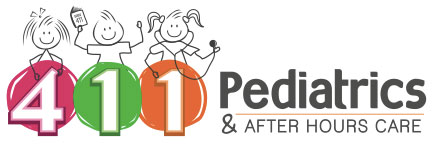Look Who’s Talking?
As your baby approaches the end of his first year, he will try to talk to you. Your baby should start working on making consonant noises and stringing them together. First it is ba-ba, ga-ga, then da-da, and ma-ma. Sorry to tell you dads, but your baby probably will say Dada first because d’s are easier to say than m’s. But, you can believe whatever you want to!
By his first birthday, your baby should be able to say “Mama” and “Dada” and actually mean it. He should also have one other word, that you recognize as a meaningful word. (It may not be clear to anyone else!) Don’t be alarmed if some of your baby’s playmates have more words than that. Developmental milestones have a range of what is considered normal. In general, your healthcare provider will expect your baby to have about three words at 15 months and five or six words by 18 months.
Because babies have few words to express themselves, they resort to non-verbal communication. Your baby may show you he wants to be picked up by raising up both his arms. Or, he will rely on “Point and Grunt” sign language.
Even though your baby has very little to say, he understands quite a bit of what you are saying to him. There are actually two separate parts of language development. The language “output” is called expressive language. And language “input” is called receptive language. By one year of age, your baby should know his name and follow a one-step request like, “Go get the ball.”
So, how do you foster your child’s language skills? Talk to him. Read to him—every day. Have a conversation with him. He may have a lot he wants to say to you (even though you have no idea what he is saying). If your baby points to an object, tell him what the word is for the object before giving it to him. Example: Say “Cup?” instead of “Oh, do you want the cup?”
As your baby enters toddlerhood at his first birthday, you can start pretending you don’t understand what he is asking for. He might have a word for “cup” if you play dumb. Who needs to talk if you get everything you want anyway!
If you have any concerns about your baby’s language milestones, please discusse them with your healthcare provider.


